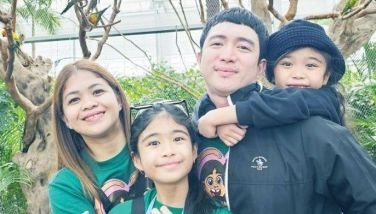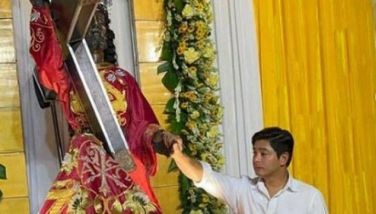Bing Lao's directorial debut is an 'easy ride'
MANILA, Philippines - Other than Lav Diaz, whose Batang West Side (West Side Avenue, 2001) has become a beacon of artistic integrity and independence in the midst of a failing mainstream cinema Armando “Bing” Lao can be referred as one of the figureheads of Philippine cinema. Understanding the budgetary limitations of filmmaking in the country, Lao devised a screenwriting manual called “real-time” that allowed several filmmakers to make films from available technology and meager resources.
Biyaheng Lupa (Soliloquy) is the first film where Lao attaches his name as director. The conceit is fascinating: passengers of a bus en route from Manila to Legazpi City are exposed through their thoughts, magically vocalized whenever the door closes turning the bus into a space that is insulated from the rest of the world. Despite the liberties Lao made with reality, he maintains an accurate grasp of the process of bus travel: the noticeable eccentricities of each and every stranger you are forced to breathe the same enclosed air with, the momentary connections made through shared glances, baseless annoyances with each other and the isolated idle chatter, the torturous passing of empty time, and the occasional roadblocks like a sudden flat tire or an unavoidable checkpoint.
This deliberate attention to detail that encompasses not only the tangible elements but also the mood of the milieu has always been a trait of all of Lao’s filmed scripts. The vast gap between the poor and the middle class in Jeturian’s Pila-balde (Fetch a Pail of Water, 1999), the underhanded exploitation of cinema in Jeturian’s Tuhog (Larger Than Life, 2001), the transitory romances of the tourism industry in Minsan Pa, and the coinciding physical deterioration of a family-run movie theater and the moral depletion of the family running it in Serbis, these pervading concepts are adeptly translated into the screenplay, and eventually into the films, through the seemingly impertinent details and textures in the narrative that actually add more than color but thematic integrity to the filmed stories.
Biyaheng Lupa remains strictly Filipino without debasing us as a people. It will find its rightful spot in global cinema.
Production design is by Jesus Lozada, cinematography by Ogi Sugatan, music by Gian Gianan, sound design by Ditoy Aguila, live sound by Nolet Clemente and editing by Jay Halili.
- Latest
- Trending































